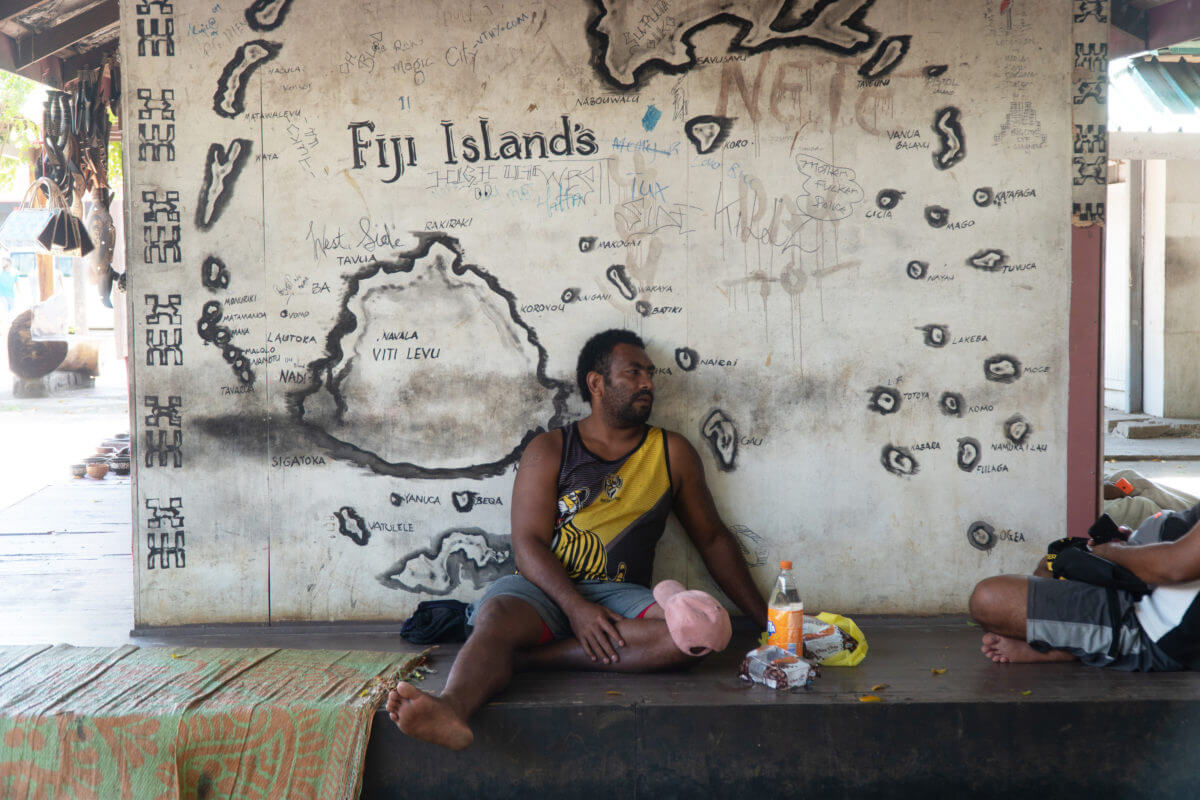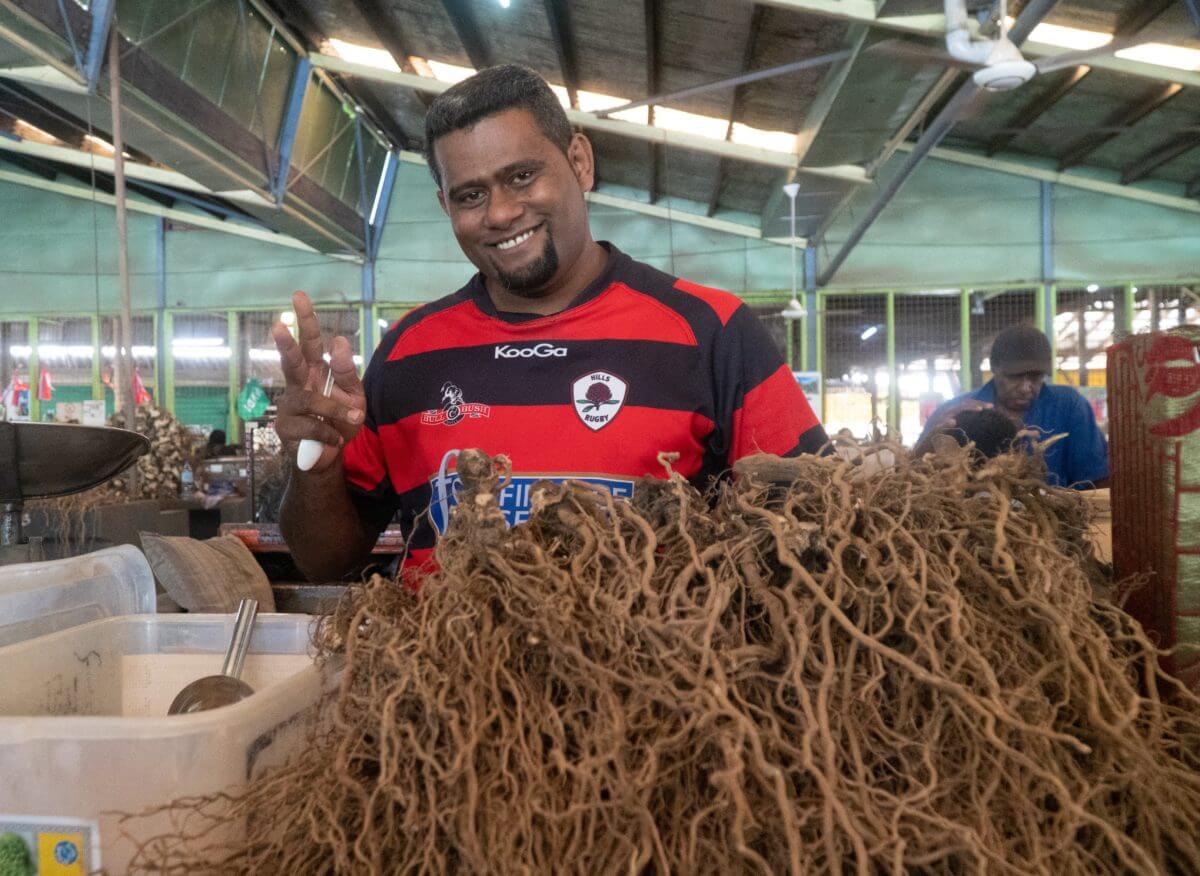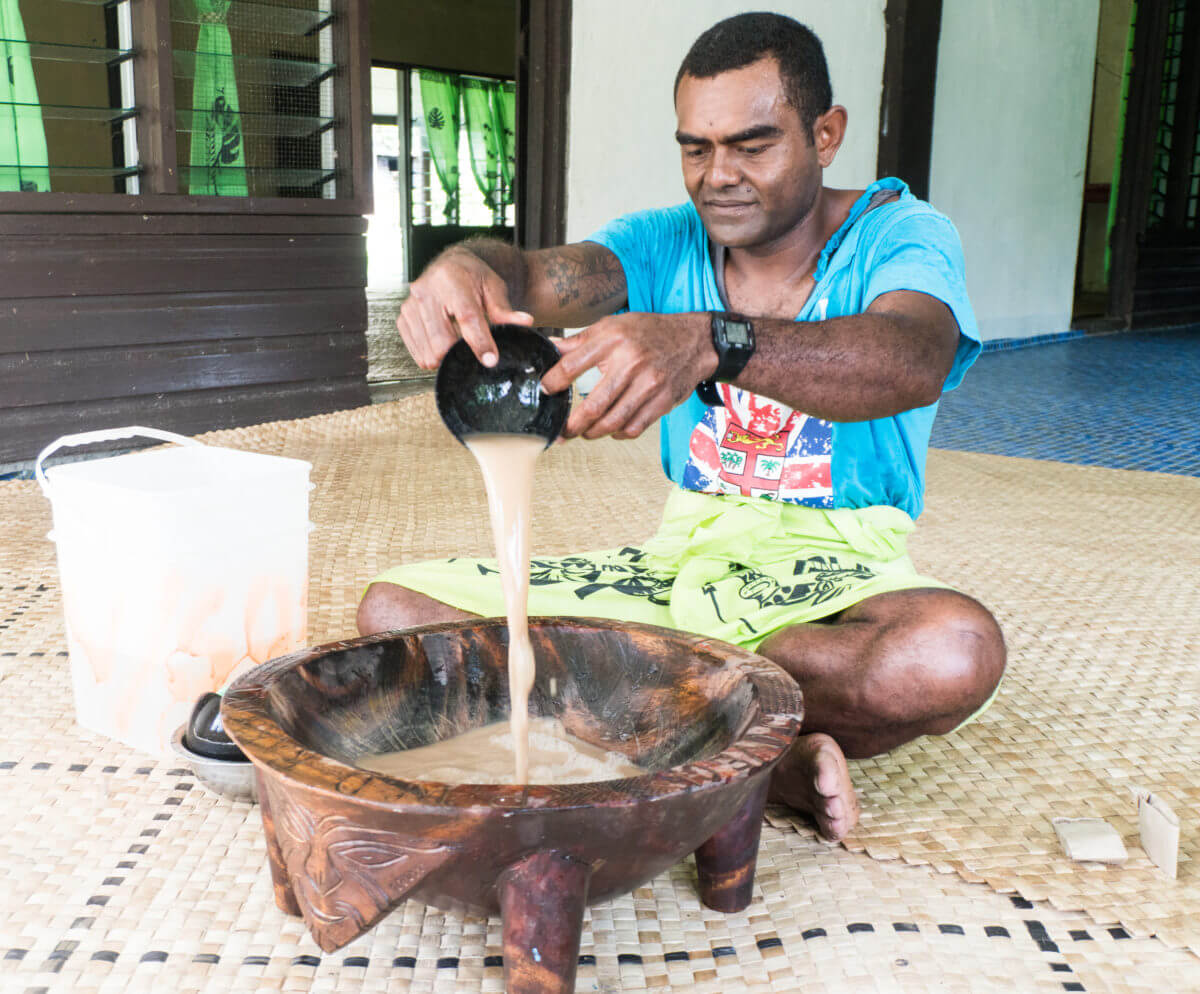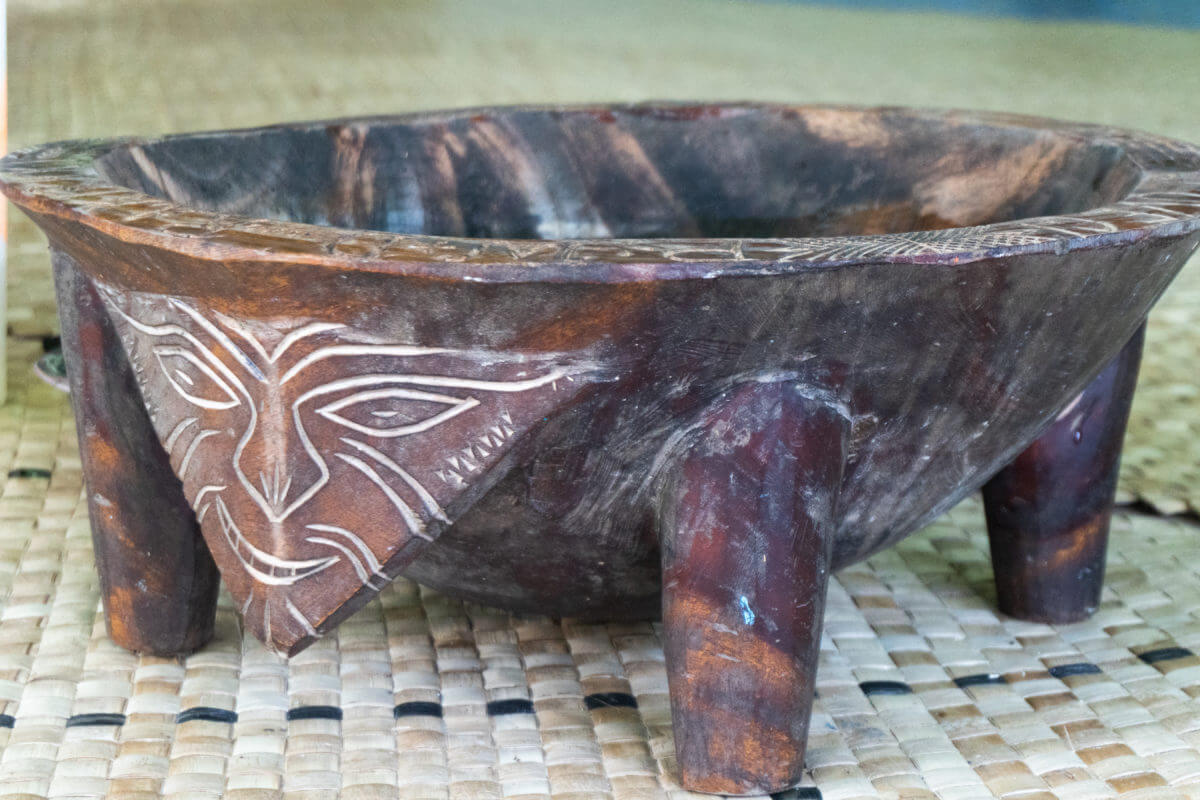
Rituals and traditions in Fiji Tabua and more
I am a well known dreamer. Visiting the islands of the South Pacific was a part of my old year’s dreams. Last February, just before the corona virus brutally entered our lives and stopped the globe, we were travelling to Fiji, archipelago of more than 300 islands in the South Pacific. Famous for rugged landscapes, palm lined beaches and coral reefs with clear lagoons, rich culture and rituals – my imagination was ‘working on full gas’.
Fiji has two major islands; both contain most of the population. The largest is Viti Levu (“Great Fiji’), the home of the capital Suva, which is a port city with British colonial architecture, and the other is Vanua Levu.
Bula and Isa Lei – Hi and Bye
Once I landed in Fiji I was first welcomed with the greeting of “Bula” (pronounced boo-lah!). I certainly feel I have arrived somewhere special. By the time I left Fiji, I have heard “Bula!” hundreds of times and will find myself saying it over and over to friends and family who have no idea what I am talking about.
What is it this “Bula!”?
The Fijian people are exceedingly warm and friendly, and they love to express their love of life and their genuine hospitality with enthusiastic and ubiquitous “Bulas!”. The literal meaning is “life,” and when used as a greeting it implies wishes for continued good health. Bula is also used as a blessing when someone sneezes.
Another surprising and beautiful pair of words is ‘Isa Lei’ is heard when saying goodbye. Once you are to leave the country, they sing for you, with their beautiful voices and rhythm, the famous song of ‘Isa Lei’. It is a traditional Fijian farewell song:
Isa you are my only treasureMust you leave me, so lonely and forsaken?As the roses will miss the sun at dawn,Every moment my heart for you is yearning. (Chorus)
Isa Lei, the purple shadow falling,Sad the morrow will dawn upon my sorrow,Oh forget not, when you’re far awayPrecious moments at Suva. Isa my heart was filled with pleasureFrom the moment I heard your tender heart greetingMid the sunshine, we spent the hours together,Now so swiftly those happy hours are fleeting. (Chorus) Over the ocean your island home is callingHappy country where roses bloom and splendour,Oh if I could but journey there beside youThen forever my heart would sing in rapture. (Chorus)
Kava – Yaqona Ceremony
My second day and I am lucky to be accepted by the chief of the neighbouring village, Mr. Waisake Lalanabaravi. Penia Ravulo, the security guide of Wananavu, is instructing me about the protocol that is needed: I should buy a small amount of kava to present as a sevusevu (gift). I should dress modestly (no hats, camisoles, tank tops, no shorts or above-the-knee skirts) and cover my legs with a Fijian sarong, which Miri (the Wananavu kind lady) gives me as a present to remember.
In Fiji’s villages, custom holds that a visitor needs to ask permission to enter the village and show his friendly intentions, by offering a tangled bundle of kava roots or crushed powder which shows gesture of respect. I can assume that it is like the way a Western guest brings a bottle of wine to the host of a dinner party.
Kava, known locally as yaqona, is a mild analgesic and stress reliever made from the root of the piper plant and is an important part of Fijian culture. It is to show the complex relationship between the host and the hosted. When a visitor has their sevusevu accepted, they become part of the larger village family. By receiving something back – usually sharing in grog (the kava root mixed with water) – the visitor acknowledges this obligation.
Removing my shoes and entering the room, I was seated on a woven grass mat in front of a man, in his sixties, grey hair and smiling welcoming face but still questioning the purpose of my visit. Mr. Waisake Lalanabaravi is one of the chiefs of Fiji and I must get his acceptance for coming to his village by performing the kava ceremony. The drink is made from the root being pounded to a powder in an oversized mortar and pestle. After being mixed with water and strained through cloth, I accepted my beginner’s ‘low-tide’ sized coconut husk bowl. Drinking the Kava tasted in grassy flavours with a hint of bitter and the bite of pepper. I clapped once and said bula when accepting my bowl. After finishing it in one time, I returned the bowl and was clapping three more times.

Penia explained and served as mediator asking me to introduce myself. After clapping 3 times in a raw Mr. Waisake accepted my Kava and I am now like a sister in his clan. The acceptance means that I am given the permission to ask questions and we had four hours of very interesting discussion. He was fascinated by talking to a real Israeli, coming from the Holy Land and asked a lot of questions about Judaism and Christianity and I was rewarded by many descriptions, presentations, explanations and fully fulfilling my never ending curiosity.
As I learned from him, the Fijian society is traditionally stratified. A hierarchy of chiefs presides over villages, sub-districts, districts and provinces. These administrative divisions generally correspond roughly with the social units of the extended family, clan, tribe and land. Each is presided over by a chief, styled Ratu if male or Adi if female.
To my surprise, Mr. Waisake is telling me that the supreme chief of Fiji is a woman. I am proud to hear it.
Tabua – In Fiji, nothing says ‘I Love You’ like a sperm whale tooth
Visiting the flea market of Suva (the capital of Fiji), wondering around and watching the local products, inside a dark shopping alley we came across a small hidden simple shop. On one of the shelves we noticed a large polished sperm whale tooth hanged on a rope. This is known in Fiji as a tabua (or tambua) and beside being a sperm whale tooth it has an important cultural role in Fijian society. They were traditionally given as gifts for atonement or esteem (called sevusevu) and were important in negotiations between rival chiefs. A sperm whale’s tooth is often given by a groom and his family to the parents of the future bride when he asks permission to marry her. The dead men would like to be buried with their tabua, along with war clubs and even their strangled wives, to help them in the afterlife. Tabuas are also given in funerals and births and serve also as a tool to seal an apology.
“I give the tabua, and that means ‘I love you’ from the inside.”
Tabua is roughly translates to “sacred” in Fijian. The valuable relic, associated with good luck and even supernatural powers, has traditionally paved the way for marriages in this nation of more than 300 for many years. With few countries still harvesting whales and laws limiting the international trade of endangered species like the sperm whale and their specimens, the number of tabuas circulating in Fiji is dwindling, causing prices to rise. A single tooth strung with braided cord as an oversized pendant on a necklace can cost hundreds or even thousands of dollars.
The Chief, Mr. Waisake Lalanabaravi, when hosting me in his village, was presenting me the tabuas he keeps at his home. He is collecting them for use in the future. He was telling me that his first son, when decided to get married, he gave 15 tabuas, each of them worth 4/500 dollars. His second son he gave 12 tabuas… now he is collecting and saving tabuas for his next son. Most of the tabuas he buys by himself but, as a respected man in the clan, he is also receiving some of them for a good advice or as gratitude.
Despite the high cost, giving tabuas “is very much still alive and a part of our culture,” said Chief Waisake. The practice is more common in rural areas, he said, but even in the urban areas, the tradition continues among families.
The shopkeeper lady at the handicraft market in downtown Suva, is sitting behind a tiny stall surrounded by mats, bags and fans woven from pandan leaves. She keeps a supply of tabuas available by buying them from families who run into financial troubles. “Once they get into financial constraints, that is when they have to sell these items,” she says: “Keep on recycling, eh? And very good business. The more recycling, the better for us.” Buying a tabua before an engagement is also about status: “It means the man’s family is quite well off.” She pulls off from behind a blue plastic bag containing half a dozen sperm whale teeth and put it on the table. Some were cream. Others had a brown hue. Their size varied from the length of a hand to the length of a forearm. The largest cost about $1,000.
With about 90,000 people, Suva has the feel of a large town. Colourful buses clog the narrow streets, their windows missing glass to make the humidity a little more bearable. Just as colourful is the city’s heart: the fruit, vegetable and flower market where villagers make the daily journey to sell their produce. But, the most interesting area is the tabua sellers.
During the days of warring tribes, before Fiji became a British colony in the late 1800s, if a chief wanted someone killed and was unable to do it himself, he offered a tabua to another tribe to take care of the matter. This was the case for an unfortunate 19th century British missionary, the Reverend Thomas Baker. According to national legend, the missionary Baker offended a village chief, who then offered a tabua to another tribe to kill Baker. In 2003, the descendants of the killers (that also probably ate him) presented 100 tabuas to the missionary’s ancestors in an effort to break what was viewed as a curse on the area.
Observing the variety of the tabuas in the tiny corner shop, a buyer enters the shop and tells us that by buying the tabua he shows that he is “willing to take up this responsibility to become a husband and a father” but he wants to be sure it is a real tooth and not an imitation. Tabuas made from plastic are also circulating, so the lady seller has her ways to identify the fakes: “we use matches to light the tabua, if it melts, that’s the fake one.”
Today the tabua remains an important item in Fijian life. They are traded regularly as gifts in weddings, birthdays, and at funerals. The tabua is also increasingly used in advertising as a trusted symbol or brand, for example; Fiji Airways has a Tabua Club (frequent flyer) and a Tabua Class for business class. They also feature on the Fijian 20 cent coin.

Dafna Nevo (Shtelzer)
A sociologist, anthropologist and keen photographer. Motivated by curiosity and scholarship, she has connected with the colourful conundrum that is today’s Papua New Guinea and wrote a book ‘Tangled in Time’ about it. Here she is expanding her adventure to Fiji..
[email protected]Whatsapp/Line: +66851144390





